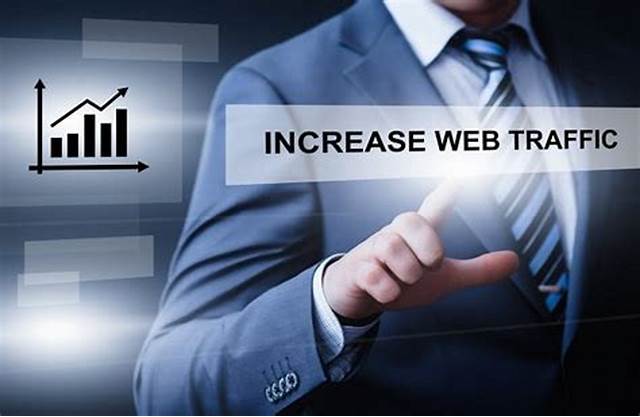In today’s digital landscape, social media marketing has become a crucial strategy for driving traffic to websites. With billions of active users engaging on various platforms, businesses can leverage social media to not only build their brand but also to funnel potential customers to their websites. Here’s how social media marketing can significantly increase your website traffic.

1. Direct Link Sharing
One of the most straightforward ways social media drives website traffic is through direct link sharing:
- Content Promotion: By regularly posting links to blog articles, product pages, or service descriptions, businesses can encourage their followers to visit their website. Engaging captions and enticing visuals can make these posts even more effective.
- Consistent Posting: Sharing content consistently helps keep your audience engaged and reminds them of your offerings. It increases the likelihood that they will click through to your site.
2. Increased Brand Visibility
Social media enhances brand visibility, making it easier for users to discover your website:
- Wider Reach: By sharing content on social media, businesses can reach a broader audience beyond their immediate followers. Shares and retweets can exponentially increase visibility.
- Viral Potential: Compelling content has the potential to go viral, leading to significant spikes in traffic. A well-timed post or trending topic can propel your content to new heights, attracting users to your website.
3. Engagement and Community Building
Engaging with your audience on social media fosters community and encourages website visits:
- Building Relationships: Actively interacting with followers by responding to comments, messages, and mentions creates a sense of community. When users feel connected to your brand, they are more likely to visit your website.
- User-Generated Content: Encouraging users to create content related to your brand can amplify your reach. For example, contests and challenges can motivate followers to share their experiences and link back to your website.
4. Targeted Advertising
Social media platforms offer advanced advertising options that can significantly drive traffic to your website:
- Precision Targeting: Paid advertisements allow businesses to target specific demographics, interests, and behaviors. This ensures that your ads reach users who are most likely to be interested in your products or services, increasing the chances of website visits.
- Call-to-Action Buttons: Many social media ads include call-to-action (CTA) buttons that direct users straight to your website, making it easy for potential customers to learn more or make a purchase.
5. Content Diversity
Social media allows businesses to share diverse content formats, appealing to various user preferences:
- Visual Content: Posts featuring images, videos, or infographics tend to capture attention more effectively than text alone. Engaging visuals can entice users to click through to your website for more information.
- Live Streaming and Stories: Features like live videos and stories create urgency and encourage users to take immediate action, including visiting your website.
6. SEO Benefits
While social media does not directly impact SEO, it can contribute to a stronger online presence, leading to increased traffic:
- Social Signals: Engaging content that is frequently shared and liked can signal to search engines that your website is valuable, potentially boosting your search rankings.
- Increased Backlinks: As more users share your content, there is a higher chance that other websites will link back to your site, improving your domain authority and organic traffic.
7. Cross-Promotion
Cross-promotion on different social media platforms can help drive traffic to your website:
- Linking Between Platforms: Share links to your Instagram posts on Facebook, promote your TikTok videos on Twitter, and encourage followers to check your website for more content. This interconnected strategy can lead to increased traffic from multiple sources.
- Collaborations with Influencers: Partnering with influencers can expose your brand to new audiences. When influencers share links to your website, their followers are more likely to visit your site, increasing traffic.
8. Analytics and Optimization
Social media platforms provide valuable analytics that help businesses understand their audience and optimize their strategies:
- Performance Tracking: By analyzing which posts drive the most traffic, businesses can refine their content strategies and focus on what resonates with their audience.
- Ad Performance Monitoring: Insights from social media ads can help businesses adjust targeting, messaging, and content to improve click-through rates and website traffic.
9. Events and Promotions
Utilizing social media to promote events and special offers can generate traffic spikes:
- Event Promotion: Sharing details about upcoming webinars, workshops, or product launches can encourage followers to visit your website for registration or more information.
- Limited-Time Offers: Highlighting exclusive deals or promotions on social media can create urgency, motivating users to visit your site before the offer expires.
Conclusion
Social media marketing is an effective strategy for increasing website traffic, providing businesses with various tools to connect with their audience and drive conversions. By leveraging direct link sharing, engaging content, targeted advertising, and community building, businesses can effectively funnel traffic to their websites.


No responses yet